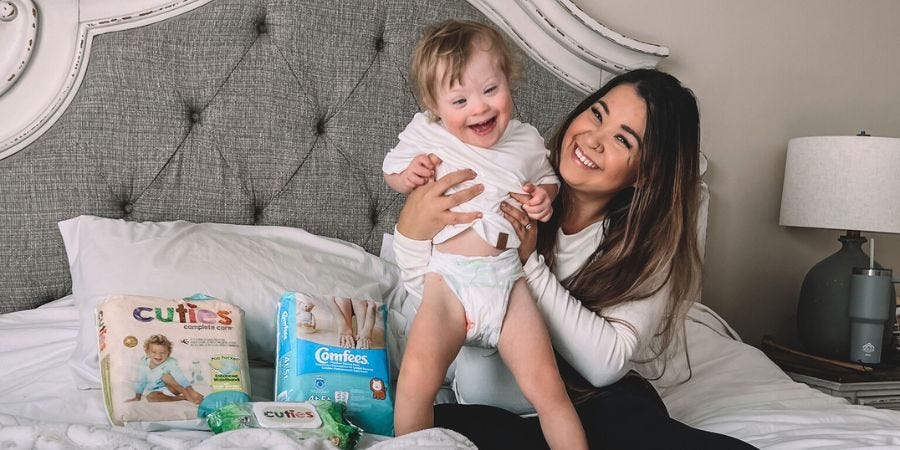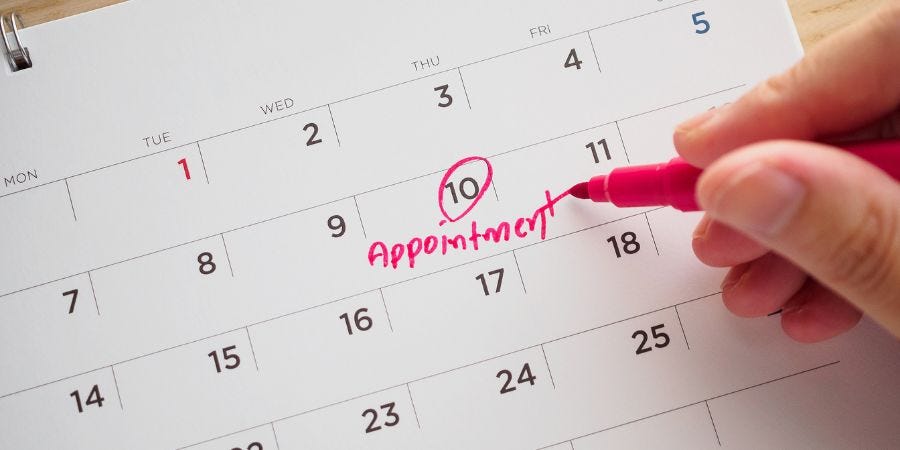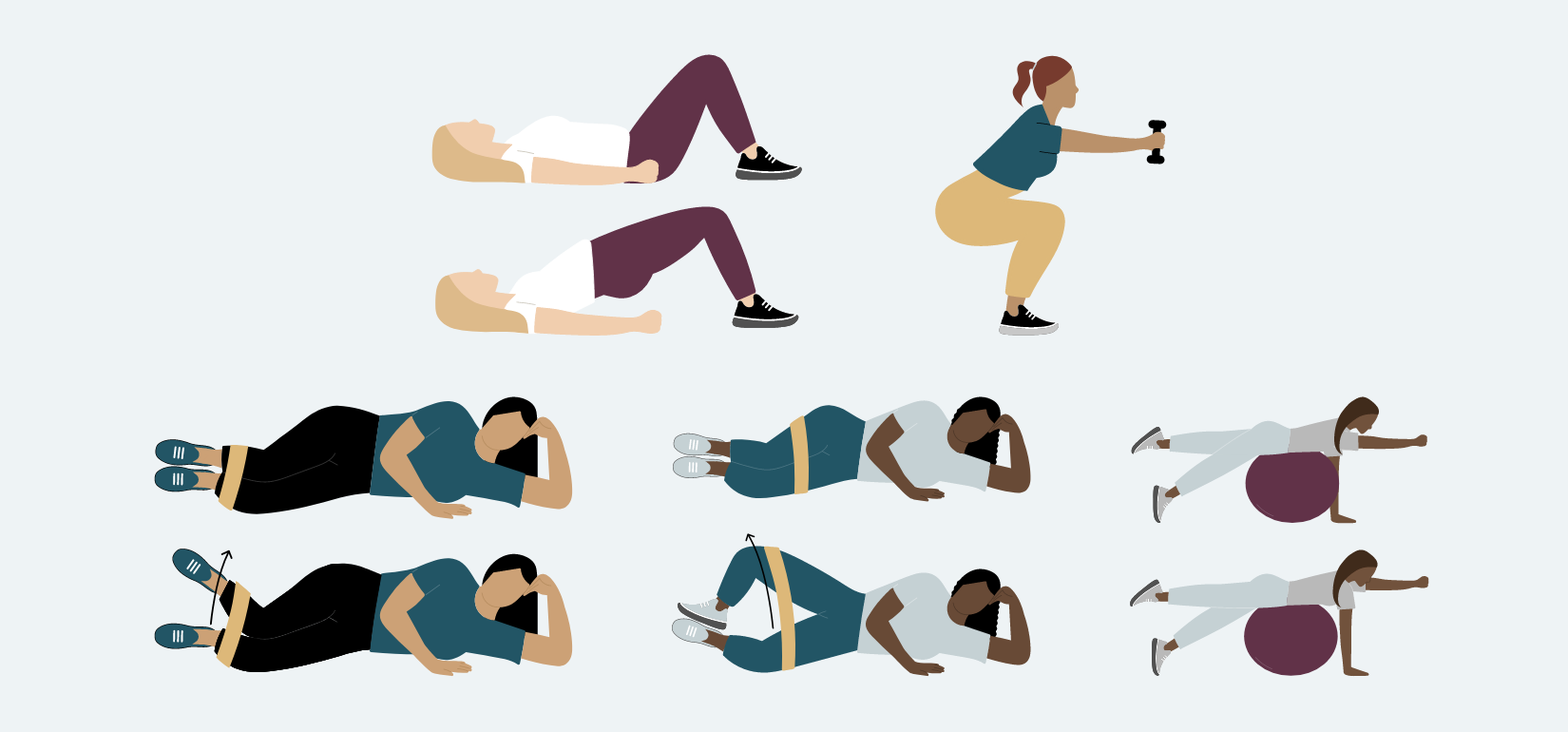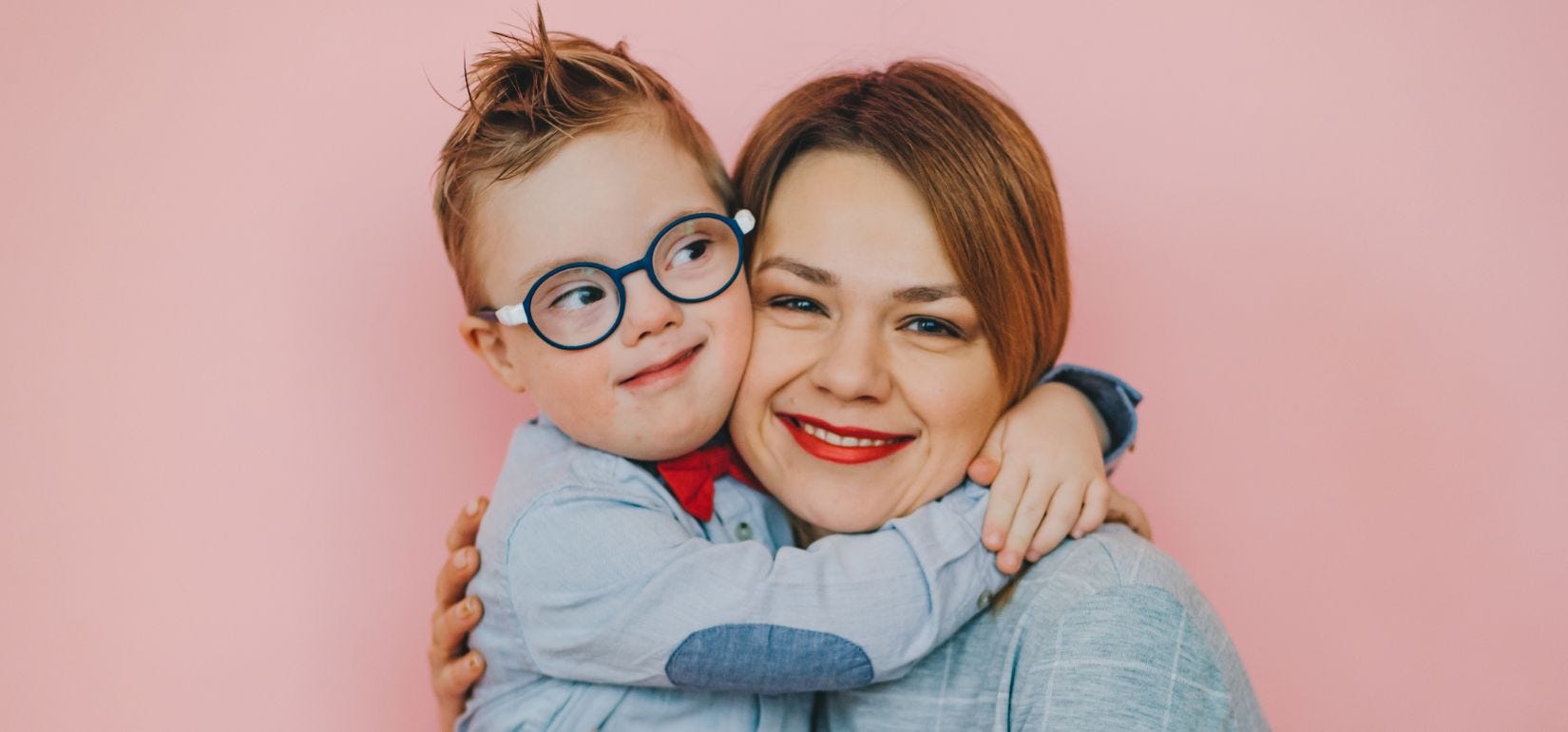Top Tips:
- Be patient and go at your child's own pace when toilet training.
- Use resources like "Tot on the Pot," Daniel the Tiger, and Ms. Rachel to encourage your child to use the potty.
- Don't give up! Toilet training a child with Down syndrome can be a long road, but it's worth it in the end.
Tailynn Brost is a wife, Down syndrome advocate, and mother of 2 children, Dayton and Aspen. Her youngest son, Aspen, was born with Down syndrome (DS), and as they potty trained him, they learned some valuable lessons along the way.
In this article, Tailynn shares her best toilet training tips.
Jump To:
Toilet Training Q & A With Tailynn Brost
How to Receive Free Bladder Control Supplies for Your Child With Down Syndrome
INCONTINENCE PRODUCTS THROUGH INSURANCE:
Aeroflow Urology is in-network with many Medicaid and Medicaid-managed insurance plans and is accredited by Medicaid. Complete our Eligibility Form, and we’ll automatically check to see if your plan covers incontinence supplies. ***Must meet certain requirements to qualify.***
You will also receive the care and attention every person managing incontinence deserves: A personalized list of 100% insurance-covered incontinence supplies, a dedicated Continence Care Specialist you can contact during business hours, a user-friendly online portal for easy monthly reordering, and educational content.
Get the continence care you need with the dignity you deserve. Join the Aeroflow Urology family today! It only takes 5 minutes to get started.
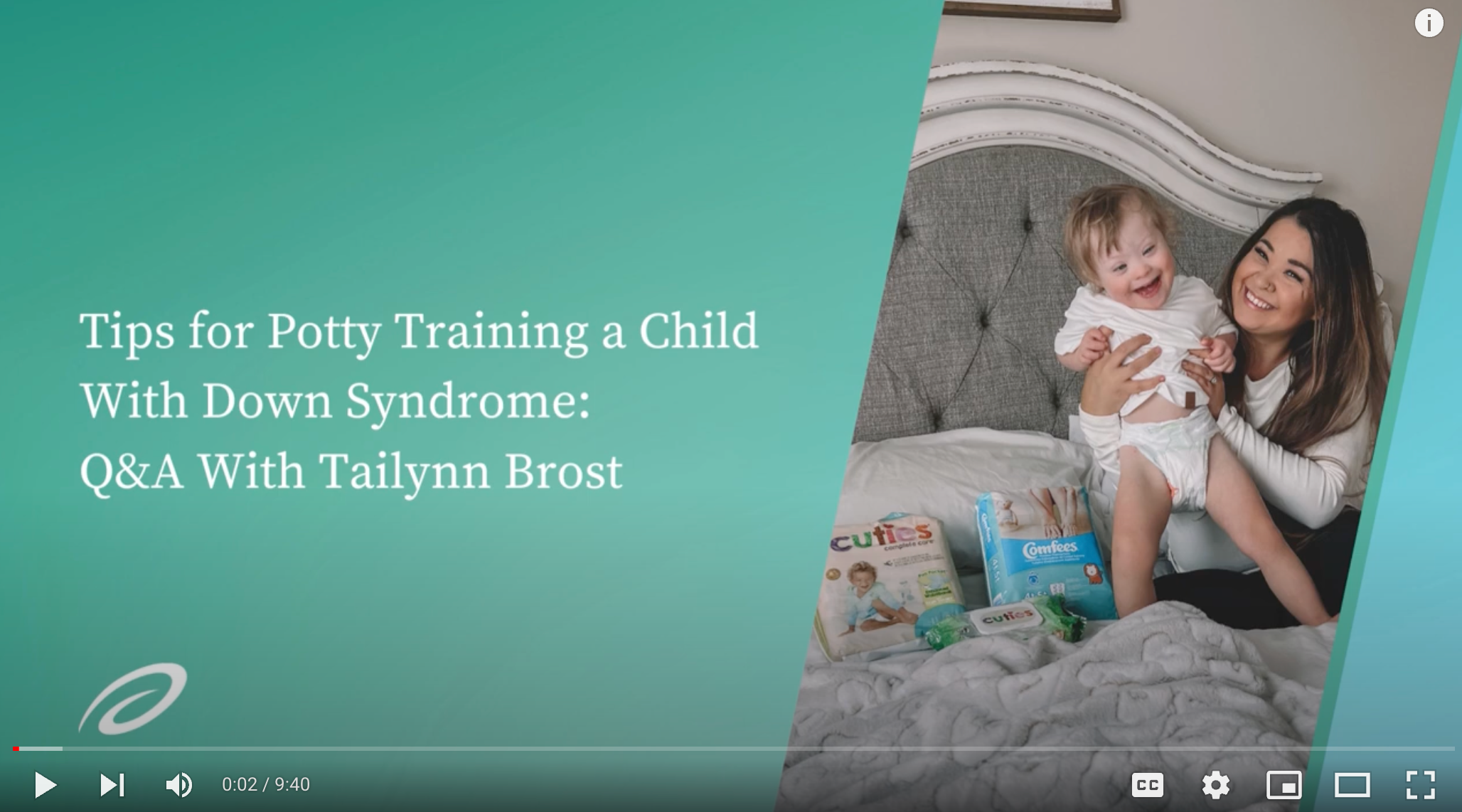
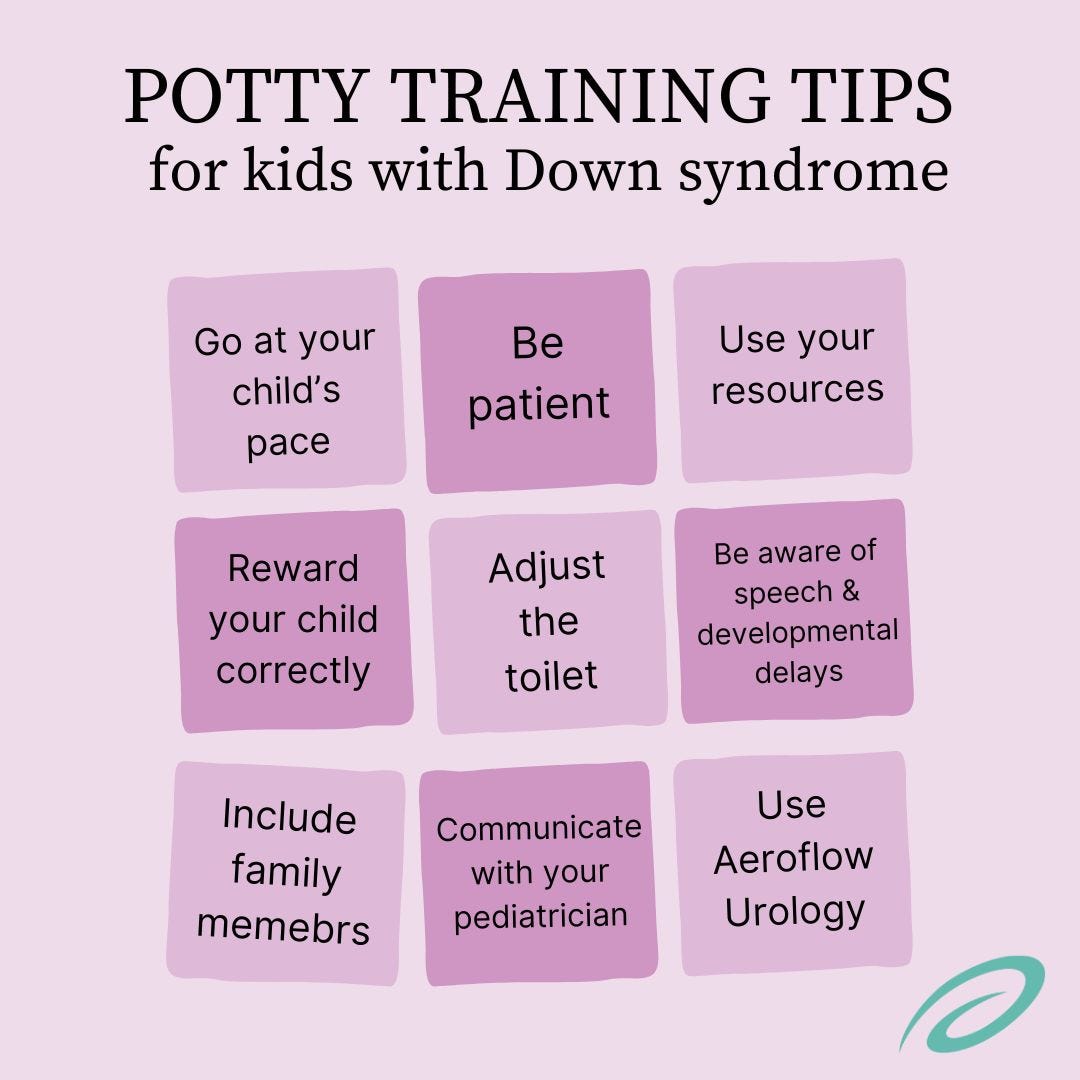

Check Your Eligibility
2 Easy Steps
From diapers to pull-ups, discover the continence care essentials covered by your insurance.
Toilet Training Q & A With Tailynn Brost
How did you approach toilet training with Aspen?
A: We used a more "at our own pace" approach. When I was potty training Dayton, I learned very quickly how stubborn he was. Once we went at his pace, he was fully potty trained in one weekend, and no accidents ever happened. So, we decided to take this approach with Aspen as well.
We got him a tiny toilet that played music and lit up when he flushed it since Aspen loves lights and music. We tried to get him excited about it. But while he did sit on it for a few days, it wasn't consistent, and he was sick that same week, so it didn't end up sticking.
We are waiting until he is ready or shows signs again, and then we'll try it again!
Are there specific challenges or considerations unique to DS that you've encountered during toilet training?
A: I think the hardest part for us with potty training Aspen and him having DS is the speech delay. He can't tell us if he has to go potty. It's sort of an 'okay, let's try now; maybe he has to go now' thing.
We have tried teaching him the sign for potty, but he doesn't use it. So, we're just waiting until he's ready.
How did you determine when Aspen was ready for toilet training?
A: We thought he was ready when we tried to potty train him the first time because he would remove his diaper right away when it was wet. He also started yelling when he had to go. Even when we went to his aquatic therapy, he would try to get out of the pool because he had to go and didn't want to go in the swim diaper.
But then he just stopped, and it doesn't seem to "bother" him anymore. Hoping we get there again soon!
What modifications or adjustments did you make to standard toilet training strategies to accommodate Aspen's unique needs?
A: We got one of those padded toddler seats and then a mini toilet.
Were there specific tools, resources, or assistive devices that proved helpful in the process?
A: We found something called "Tot on the Pot" that seemed helpful. It's a cute little stuffed boy or girl with a tiny toilet and a board book. It's supposed to help your child establish a routine and go to the bathroom with the help of their stuffy.
How did you establish a consistent toilet training routine for Aspen?
A: Unfortunately, we haven't yet! Whenever he's ready.
How did you facilitate communication about toilet training with Aspen, considering potential speech and language delays associated with DS?
A: The speech delay has definitely been our biggest obstacle. I dealt with that with my oldest, Dayton, as well. He had approxia of speech and delay.
We have tried teaching Aspen the sign for potty, but he doesn't care to learn it right now. He just got an AAC device, so I'm hoping this helps a lot!
Were visual aids or social stories helpful in conveying the concept of toilet training?
A: Yes, we had him read some books and the Daniel Tiger episode of potty training, too.
How did you maintain patience throughout the toilet training journey?
A: I'm patient when it comes to my kids, so I keep telling myself that I'm just letting him decide when he's ready.
What positive reinforcement techniques or rewards did you find effective in encouraging Aspen?
A: I think that's where we went wrong! We did praise by clapping, and the toilet played music and lit up, but next time we try, we'll do little chocolates. Aspen LOVES chocolate.
Were there any setbacks or challenges you faced, and how did you navigate them?
A: Yes. We did well for a few days, but then he got sick, and now we're basically back to square 1! I'm waiting for him to show signs of being ready again, and then we'll start again!
How did you involve teachers, therapists, or other caregivers in the toilet training process?
A: We didn't, but now that Aspen is in school, that will be something we will have to figure out. I think we'll give them a little handout with our process and rewards.
Are there specific community or online resources that you found valuable in gaining support and insights from other parents?
A: "Tot on the Pot," Ms. Rachel, Daniel Tiger, and other things that get on the kids' level are super helpful, I think. Pinterest is so beneficial for parents. I always go there for potty training ideas.
What advice do you have for parents dealing with regression or resistance during toilet training?
A: Don't give up! Be patient. Go at their pace if you can. Try to break that language barrier with ASL, books, or however you can!
Tailynn's Potty Training Tips
1. Go at your child's pace. You'll know when your child with disabilities is ready for potty training, whether it's from verbal, physical, or other cues.
2. Be patient. Be patient with your child and know each child is unique in their potty training journey.
3. Use your resources. Use things like "Tot on the Pot," Daniel the Tiger, Ms. Rachel, and other resources that encourage your child to use the toilet.
4. Reward your child correctly. Identify which types of rewards your child will respond to and use them with praise during the potty training process.
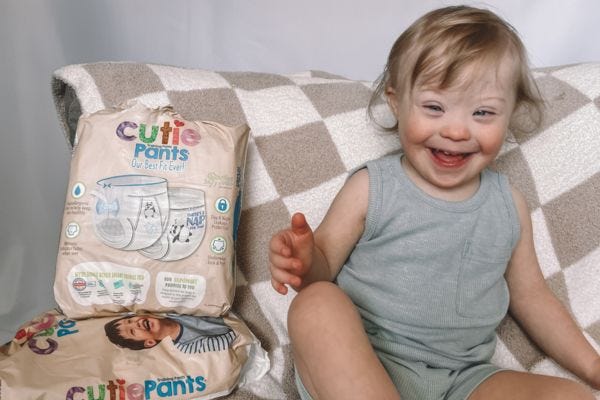

5. Adjust the toilet. Use padded toilet seats, mini toilets, or toilets that make going to the bathroom fun, such as toilets that light up or play music. However, keep in mind that your child may have sensory sensitivities, so a loud or distracting toilet may deter them from using it.
6. Be aware of speech and developmental delays. Speech delays are one of Tailynn's biggest obstacles, so ensure you know if this is occurring with your child. You may need to use sign language for "potty" or other resources to communicate with your loved one.
7. Include family members. Ensure your whole family is on the same page with toilet training your child so everything is consistent.
8. Communicate with your pediatrician. Involve your child's healthcare providers on the potty training journey. They may be able to suggest different resources and provide you with tips.
9. Use Aeroflow Urology to get free diapers and pull-ups. Aspen uses Aeroflow Urology to receive free pediatric incontinence products, like diapers, pull-ups, underpads, and more, every month delivered right to the family's home. Your child may qualify for free supplies, too! Fill out the secure Eligibility Form in under 2 minutes to find out.
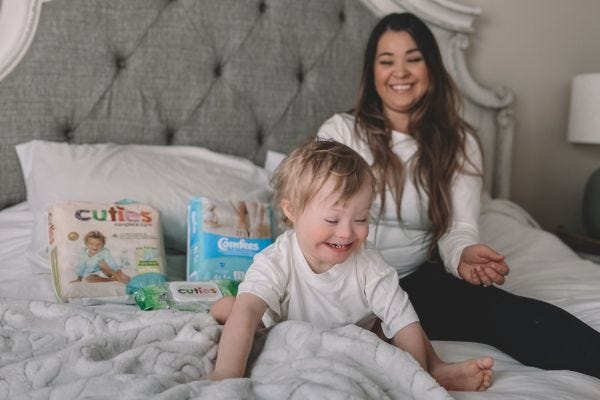

Toilet training children with disabilities can sometimes feel like a challenge, but don't give up! Remember to go at your child's pace, be patient, and use Aeroflow Urology to get free diapers and pull-ups to help during the transition.
Disclaimer
Information provided on the Aeroflow Urology blog is not intended as a substitute for medical advice or care from a healthcare professional. Aeroflow recommends consulting your healthcare provider if you are experiencing medical issues relating to incontinence.


